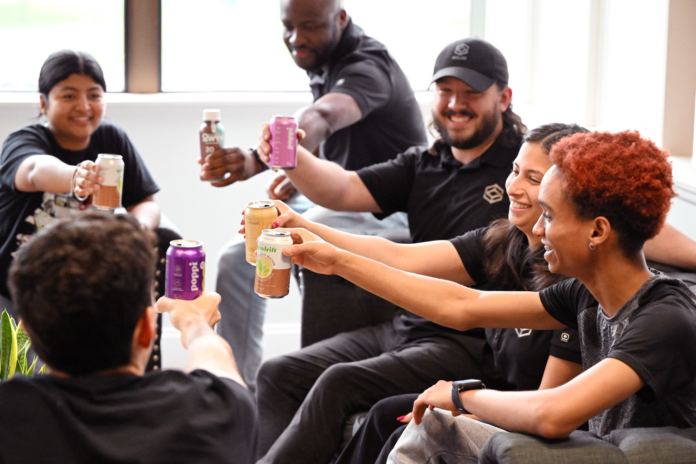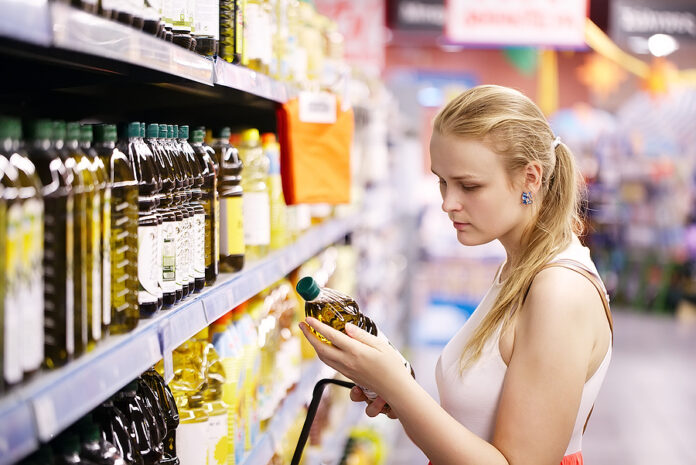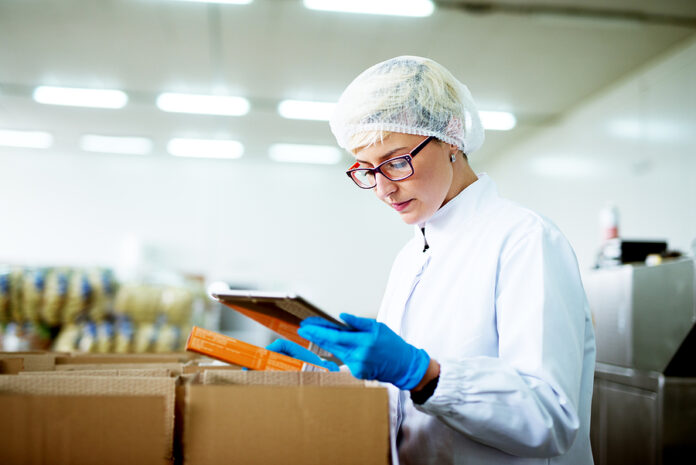
By Barak Bar-Cohen, Founder and CEO of Sojo Industries
What are key motivators behind Gen Z’s support for more sustainable food and beverage products?
Gen Z is facing challenges that generations before them did not.
As Gen Z consumers enter the workforce, they’re encountering very different circumstances than their parents and grandparents. For example, they grew up seeing the impact of climate change and a global pandemic firsthand, and for many, this led to sustainability becoming a greater priority. In 2023, Gen Z consumers face new challenges such as inflation, higher costs of living, and the impact of social media, all of which are driving this generation to make value-driven spending decisions.
It’s not surprising then that Gen Z is using their newfound purchasing power in an environmentally and financially responsible fashion. With the world they’re growing up in, every purchase counts towards preserving the planet and saving dollars toward the basic living necessities.
And what’s even better: brands and manufacturers are paying attention. Today, there are more options for Gen Z consumers to “shop their values” and ways for consumers to call out brands that are not prioritizing sustainability. This can further motivate Gen Z to demand food and beverage companies to adopt more climate-responsible practices in their supply chains.
How do food and beverage manufacturing processes impact the environment?
The manufacturing stage of the food and beverage supply chain can have profound impacts on the environment. For example, the reliance on nonrenewable energy sources to power heating, cooling, refrigeration, and other energy-intensive activities can increase carbon emissions.
Likewise, this step of the process often generates a significant amount of waste from packaging materials to processing byproducts. Excessive packaging, especially with non-recyclable or non-biodegradable materials, can further exacerbate this issue, leading to increased waste generation and pollution.
Without adequate disposal, food and beverage manufacturers may turn to landfilling or incineration — processes with harmful environmental effects. In fact, landfills often produce a natural byproduct that is composed of methane and carbon dioxide, both potent greenhouse gasses (GHG) that accelerate the climate crisis.
Considering the ways manufacturing impacts the environment, it’s important that food and beverage brands make climate-responsible decisions to reduce their environmental footprint.
What are some potential barriers that food and beverage companies face to achieve sustainability?
Large food and beverage companies mostly control their own supply chains, from ingredient sourcing to manufacturing to warehousing to distribution. However, most of the emerging brands do not.
This makes it difficult for the majority of newer brands to influence something they do not control. For example, if manufacturers rely on fossil fuels to power their warehouses, this will contribute to a product’s overall carbon footprint, and brands have little say in these decisions. So, they’ll face challenges in adopting sustainable practices throughout the supply chain.
On the other hand, for larger brands that manage their own supply chains, sustainable practices are still not widely accepted due to legacy systems and financial return models that value a healthy ROI during challenging economic times, regardless of the environmental costs. But if brands fail to invest in the future, they’ll miss out on impressing a growing customer base: Gen Z and Gen Alpha customers who expect brands to offer sustainable food and beverage products.
A part of the challenges for both newer and legacy brands is the fact that food and beverage supply chains are highly fragmented. Brands work with multiple suppliers, manufacturers, and distributors from production to retail. This makes it difficult to track and trace the environmental impact of products while assessing for quality control and food safety. Often, food and beverage products travel significant distances, making it even more challenging for brands to lower their environmental footprint.
What strategies can food and beverage manufacturers employ to increase sustainable practices in their operations?
More than a strategy, companies must make an actionable commitment to climate-responsible decisions in every aspect of their business.
When the choice is between non-recyclable plastic or packaging made from 100% recycled materials, businesses can choose to walk the talk by utilizing eco-friendly materials and finding savings elsewhere to justify the decision. Companies can also choose to work with vendors that are actively prioritizing sustainability in their operations, which can help the company reduce its carbon footprint. For food and beverage companies across manufacturing and the supply chain, sustainability must be put into practice across all processes, from ingredient sourcing to packaging to distribution, if companies truly want to be seen as green brands.
Company leaders can also put this into practice by showcasing their own sustainable choices and supporting employees to choose more sustainable options in their everyday lives. For example, companies could encourage employees to practice green lifestyles by installing free charging stations at the office for electric vehicles or providing recycling bins and a pickup program. People often view these as extra steps or more expensive options, but it can make a big difference when everyone does their part.
How can technology assist in improving sustainability efforts in food and beverage manufacturing?
Technology is one of the most prominent drivers for businesses that want to improve their sustainability efforts. In many scenarios, automation and robotics reduce the reliance on people, which can save energy, but also significant resources and waste produced by humans. Software platforms can help businesses be more sustainable by optimizing routes and analyzing weather patterns to better plan and implement more efficient manufacturing practices, which reduces wasted resources.
Real-time, data-driven insights produced by artificial intelligence are also redefining sustainability efforts for food and beverage decision-makers. This valuable data is not only helping businesses improve their own operations but also benefiting consumers by enabling businesses to forecast projections and meet the environmental expectations of buyers.
How could the changing preferences of Gen Z impact future practices and innovations within the food and beverage industry?
The preferences of younger generations, including Gen Z, are permeating the food and beverage industry. With their increased focus on healthy options, products accommodating probiotic, plant-based, and organic preferences have already made their way into food and drink innovations.
Drink categories, including non-alcoholic beverages, have emerged as major areas of growth in 2023 driven by Gen Z being the most sober generation.
Younger generations are certainly influencing the market, but as a result, we even see older consumers changing their buying habits – and sustainability is one of these areas. While Gen Z is adopting sustainable behaviors more than any other age group, their actions are driving other age groups like Millennials to make more sustainable decisions. Whether it is a decision rooted in health, sustainability, price, or quality, consumers are influencing food and beverage brands to make innovative changes. By accommodating these preferences, companies can not only gain the trust of younger generations but continue to improve their bottom lines in close alignment with the market.
 Barak Bar-Cohen is the Founder and CEO of Sojo Industries, an industrial automation company that utilizes robotics, mobility, and modularity to deliver efficient packaging and assembly solutions to the food and beverage industry. As the former COO of Bai Brands, Bar-Cohen has over 25 years of experience building and scaling businesses in the telecommunication, digital media, and beverage industries, both in the U.S. and abroad.
Barak Bar-Cohen is the Founder and CEO of Sojo Industries, an industrial automation company that utilizes robotics, mobility, and modularity to deliver efficient packaging and assembly solutions to the food and beverage industry. As the former COO of Bai Brands, Bar-Cohen has over 25 years of experience building and scaling businesses in the telecommunication, digital media, and beverage industries, both in the U.S. and abroad.

Credit: Source link







![[Guide] 5 Reasons Your Business Does or Doesn’t need an ESOP [Guide] 5 Reasons Your Business Does or Doesn’t need an ESOP](https://foodindustryexecutive.com/wp-content/uploads/2024/08/Food-Industry-Executive-696x457.png)






